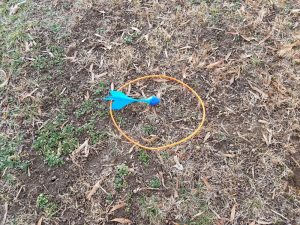If you’re thinking of installing a swimming pool in your backyard, you might have heard semi-inground pools being mentioned.
There is much more information out there about above-ground pools and inground pools, but information about semi-inground pools tends to be lacking.
As their name suggests, a semi-inground pool is a mixture of the two.
This article is designed to iron out some of the problems of semi-inground pools before you consider getting one.
Why do people get semi-inground pools?
Often, people get this type of pool because of the existing design of their backyard.
In the past, unless you had a large flat area, you couldn’t incorporate a pool. Nowadays, however, a pool can be made to fit all sorts of slopes and rocky outcrops.
As well as the terrain, underground cables, pipes, and powerlines have sometimes meant an inground pool isn’t possible.
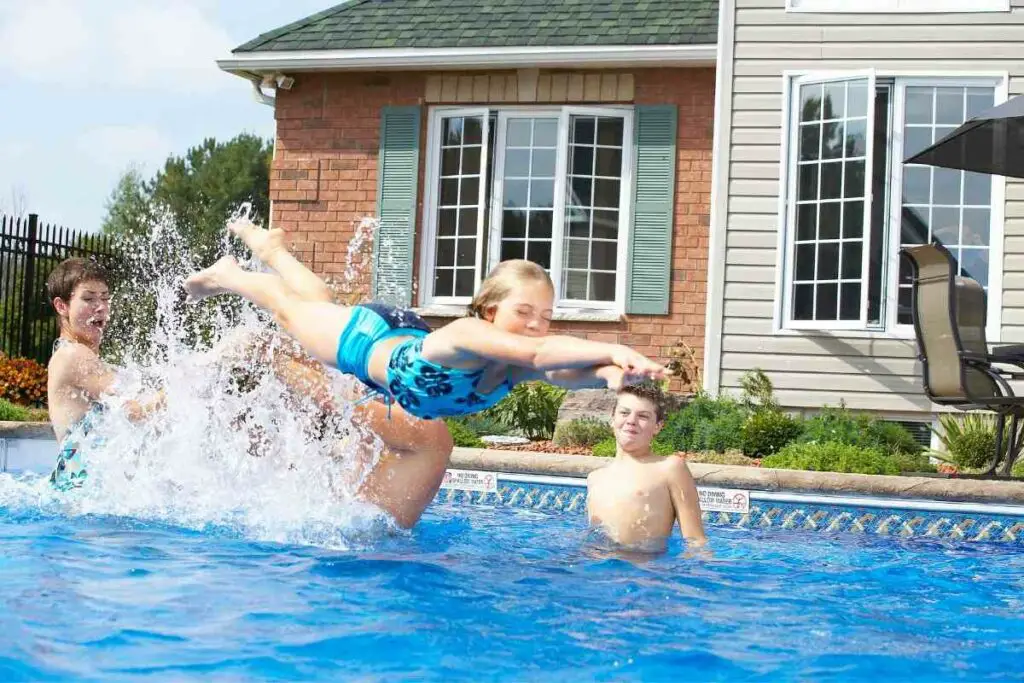
However, a semi-inground pool might be.
Semi-inground pools can be incorporated into areas by digging carefully to avoid damaging anything underground.
They typically require only half the amount of digging compared to a fully inground pool.
Keep In Mind – Installing a semi-inground pool is also a choice for its aesthetics. Even without needing to have a semi-inground pool, some people just like their range of designs.
Inground pools Vs semi-inground pools
When you’re considering installing a pool, you need to know what you’re getting and what choices you have.
Semi-inground pools can be put completely inground, completely above ground, or somewhere between the two.
Structurally speaking, a semi-inground pool can be just as strong as an inground pool.
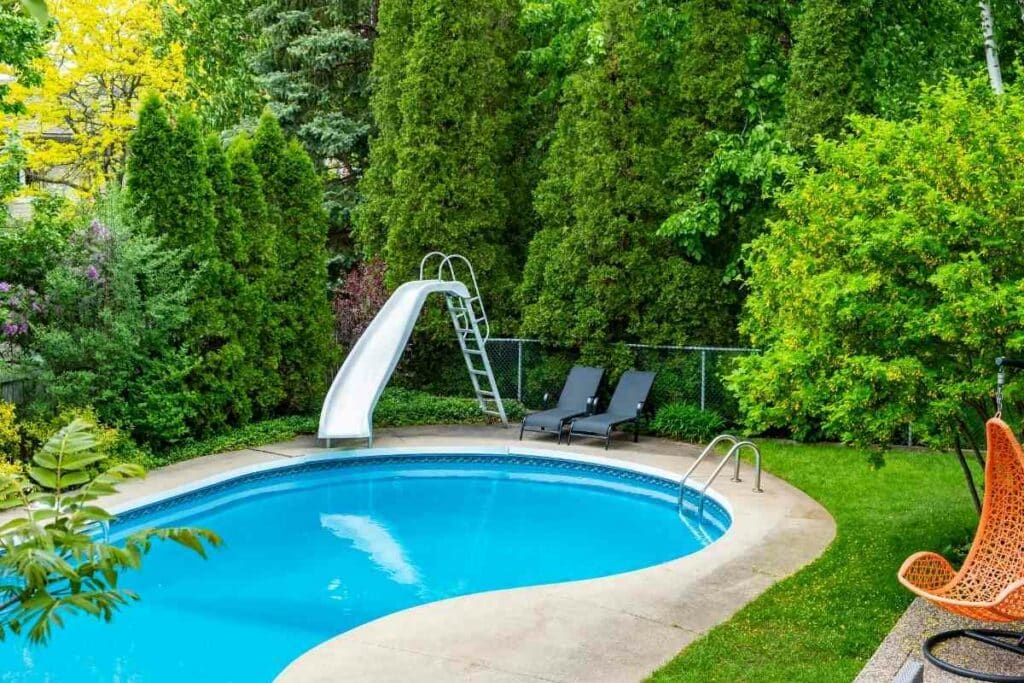
As stated above, they can even be submerged in the ground completely. This can even be at a lower cost than an inground pool installation.
And, what’s more, installing a semi-ground pool can be done in a matter of days instead of weeks.
So, if you’re looking for a pool faster and cheaper than a fully inground pool, a semi-inground pool could be the best choice.
Above ground pools Vs semi-inground pools
An above-ground pool can also be installed into the ground halfway like a semi-inground pool can.
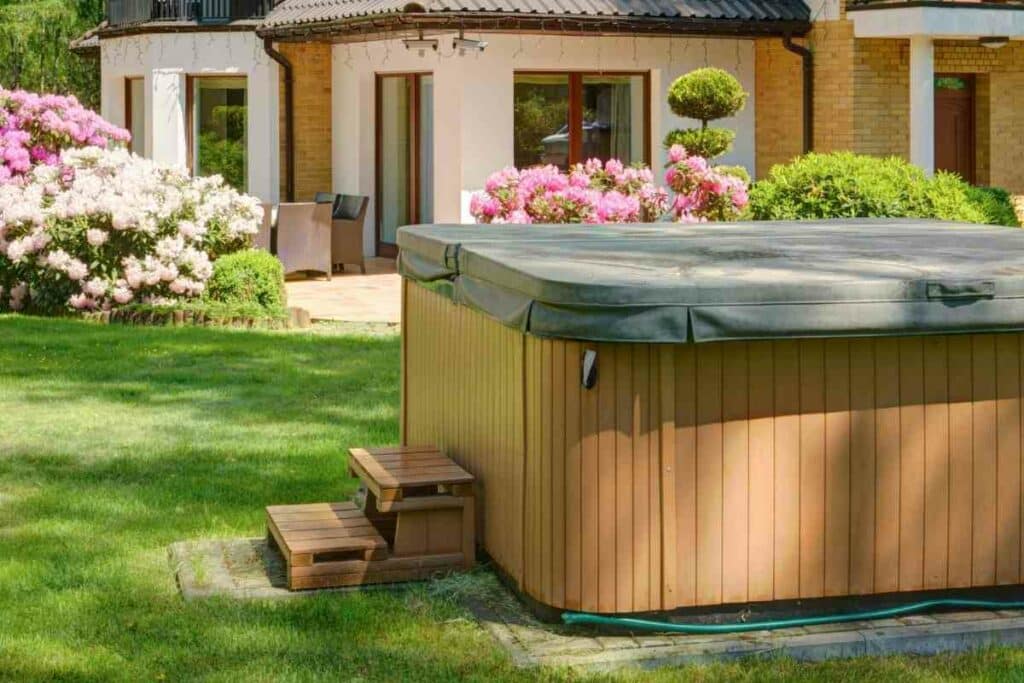
However, there is still a difference in using them for this purpose.
An above-ground pool is meant to be a temporary structure that can be moved around if wanted.
There’s no reason why an above-ground pool can’t be installed into the ground, but it is not designed to do so and won’t be as long-lasting as a true semi-inground pool.
Installing a semi-inground pool
The biggest difference between installing a semi-inground pool and another type of pool is how much the pool is in the ground.
Size-wise, semi-inground pools have the same measurements as inground pools and typically range from twelve x twenty-four feet and twenty x forty feet.
Since installing a semi-inground pool comes with flexibility, homeowners can easily comply with local height codes and swimming pool regulations.
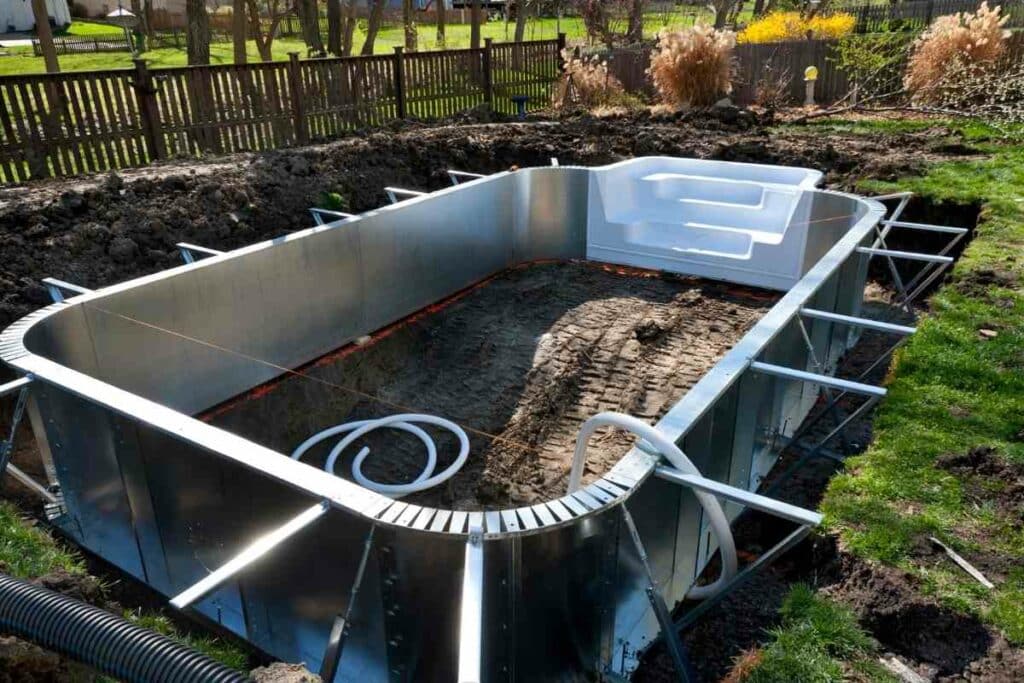
Installing a semi-inground pool is usually pretty easy since they’re made of interlocking extruded aluminum frames and walls.
They’re protected from corrosion and have double the strength of steel – similar to an inground pool.
In terms of their exterior, there are many choices of finish. These include aluminum, wood, and vinyl.
6 common semi-inground pool problems
Now we’ve explored semi-inground pools in detail, it’s time to get to the main point of our article: the common problems semi-ground pools can have.
It’s important to know these before deciding to install one in your backyard.
Semi-inground pool problems #1: Water temperature
One problem with a semi-inground pool is that it’s harder to keep the water as cool as it would be with a fully inground pool.
This is because a lot of the walls are above water above ground – at least partially.
This means that the water can heat up.
Heads Up! It might even be necessary to cool the pool water artificially with a pool chiller, which would cost more.
Semi-inground pool problems #2: Maintenance
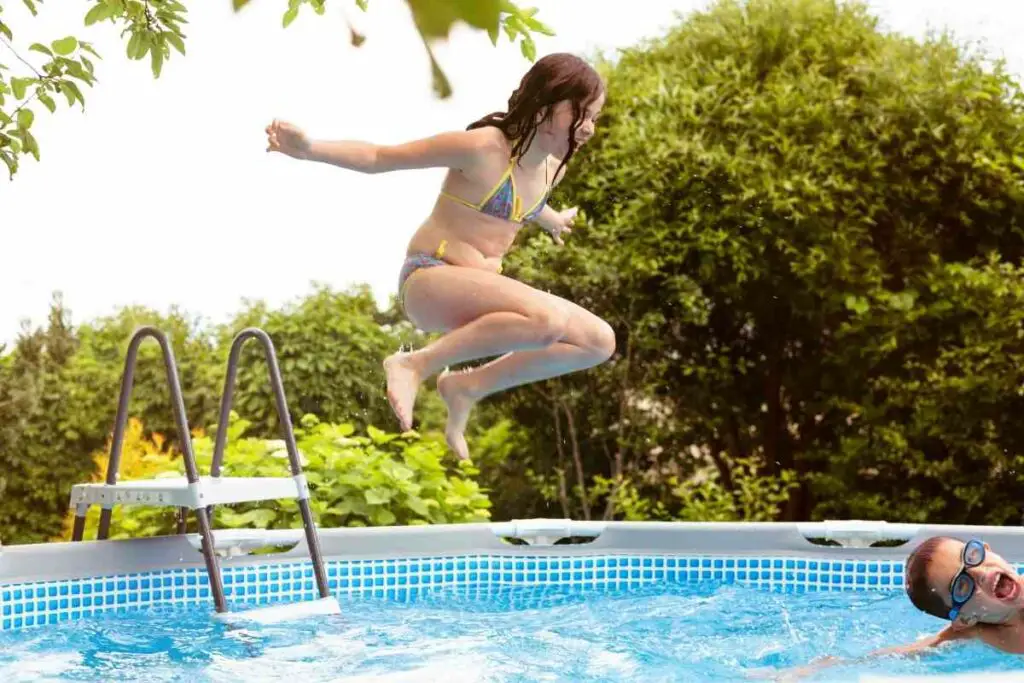
A semi-inground pool needs more maintenance compared to other types of pool in order to keep it in the best condition possible.
Specifically, the walls need lots of maintenance.
With a semi-inground pool, the walls are vital. If you don’t maintain them as required, the pool might cost you a lot of money.
Semi-inground pool problems #3: Limited options
It is harder to get a custom design with a semi-inground pool.
If you want something that is asymmetrical or with curves, you might need to go for a completely inground pool.
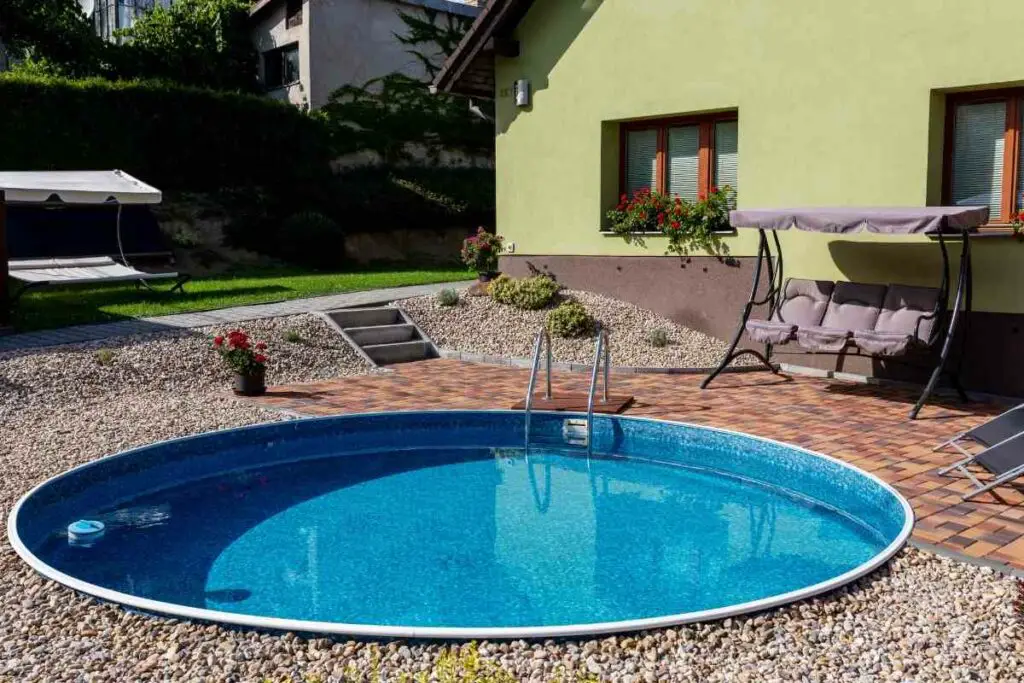
Semi-inground pools don’t have as many shape options.
Semi-inground pool problems #4: Lifespan
If you’re going for a semi-inground pool for esthetic reasons or for financial reasons, it’s worth knowing how long you can expect it to last.
Typically, a semi-inground pool will last ten years before resurfacing is necessary – and this is with appropriate maintenance.
To Compare – An above-ground pool will last between seven and fifteen years. Conversely, a fully in-ground pool will last around thirty years.
Semi-inground pool problems #5: More chemical checks
With any type of pool, you need to do chemical checks.
However, with a semi-inground pool, you need to make sure the levels are always perfect (whether it’s a chlorine or saltwater pool) because otherwise the walls can become damaged.
Semi-inground pool problems #6: Expense
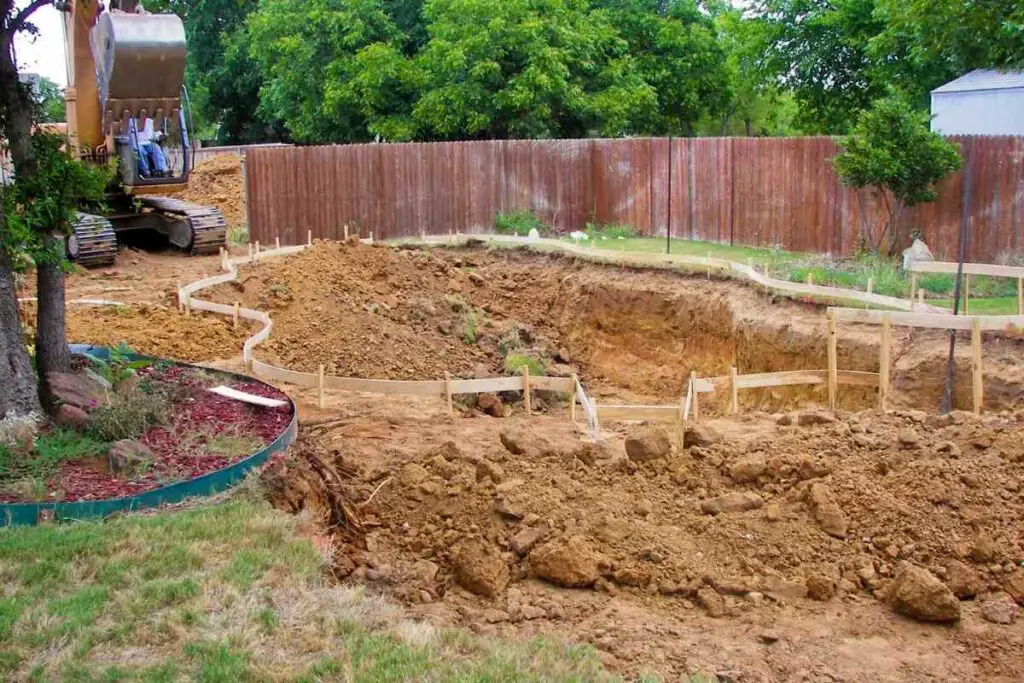
A semi-inground pool can be expensive.
This is due to the fact that its esthetics and styling costs are usually more costly.
Final thoughts on semi-inground pool problems
A semi-inground pool can be a great addition to a backyard.
Unlike a fully-inground pool, these pools are much quicker to install and can be installed in places where in-ground pools couldn’t normally be installed.
A semi-inground pool is more permanent than an above-ground pool but not as permanent as a fully inground pool.
However, they can be quite expensive and do require the most amount of maintenance of all pool types.
Though there are lots of positives to semi-inground pools, it’s always worth knowing about the downsides before spending thousands of dollars on your investment.




